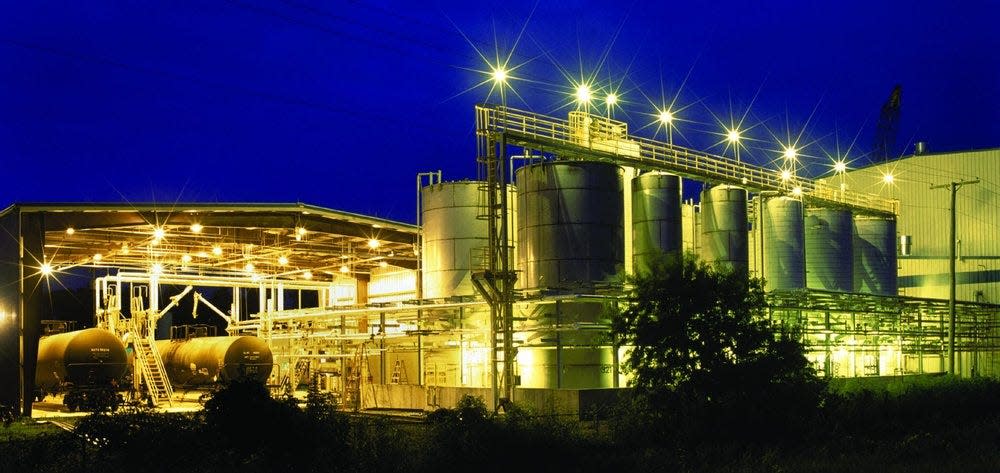Appeals court delivers split decision in Dover Chemical lawsuit

DOVER — The 5th District Court of Appeals has upheld the majority of a decision by Tuscarawas County Common Pleas Judge Elizabeth Lehigh Thomakos in a lawsuit filed by Dover Chemical Corp. (DCC) against the city of Dover.
Last year, Thomakos denied a motion by the city of Dover to dismiss the suit. The city then appealed, arguing that the judge improperly denied the benefit of immunity to Dover in three claims made by Dover Chemical — defamation, unjust enrichment and negligent misrepresentation.
More: City of Dover makes new filing in Dover Chemical lawsuit
Dover Chemical is seeking to block enforcement of an ordinance passed by Dover City Council on Feb. 15, 2021. The ordinance would require the company to pay a surcharge on any electricity it uses from the municipal light plant over 100,000 kilowatt hours per month.
Law Director Douglas O'Meara has alleged that employees of the city's Electric Field Division had been maintaining and upgrading the lines and equipment inside Dover Chemical in violation of an ordinance passed by council in 1975.
Dover Chemical has accused O'Meara, of making "false, inflammatory statements" about the company.
On Wednesday, the three judges — Earle E. Wise, Jr., John W. Wise and Patricia A. Delaney — agreed with the city that the claim of defamation against O'Meara should be dismissed because of political subdivision immunity.
"We find there is no set of facts consistent with the amended complaint that would allow Dover Chemical to prove an exception to immunity from liability on its defamation claim against the law director," the panel's opinion said.
However, the judges found that Thomakos did not err when it came to the issue of immunity in regards to unjust enrichment and negligent misrepresentation.
Dover Chemical is claiming that the city is guilty of unjust enrichment because Dover Light & Power does not generate all the electricity that it sells. The company said the light plant purchases power from another source and resells it for a profit outside Dover city limits.
"As a result of the city's resale of purchased electricity outside of the city's borders and its profits derived from such at DCC's expense, the city has been unjustly enriched," the company's complaint said.
The court of appeals rejected the city's claim of immunity. The judges wrote that Dover Chemical is seeking the specific amount of money the city allegedly collected in its practice of purchasing power and reselling it for a profit to Dover Chemical.
Citing the Ohio Supreme Court, the judges said a suit filed seeking the return of "specific funds wrongly collected" is not barred by sovereign immunity.
Dover Chemical is also claiming that the city was guilty of negligent misrepresentation. It alleged that city officials told DCC that they were willing to negotiate in good faith for a more competitive rate for electric services provided by Dover Power. However, as DCC claims, city officials had no intention of negotiating rates and were working on a rate increase.
The company claimed that "the false representation provided by the city" caused Dover Chemical to delay efforts to transition to AEP for service, resulting in economic harm.
The judges wrote that they cannot say there are any facts to show that Dover Chemical would be unable to prove an exception to immunity from liability on its negligence claim against the city.
The lawsuit was remanded to Tuscarawas County Common Pleas Court for further proceedings.
This article originally appeared on The Times-Reporter: Appeals court delivers split decision in Dover Chemical lawsuit

